THE ADDRESS
OF H.E. THE PRESIDENT OF THE HELLENIC REPUBLIC
Mr. PROKOPIOS PAVLOPOULOS
ON THE OCCASION OF THE OPENING OF THE INTERNATIONAL CONFERENCE ON:
‘‘THE REUNIFICATION OF THE PARTHENON SCULPTURES’’
Athens, 15.04.2019
Aware of the great honour, it is with sincere emotion that I declare the opening of this exceptionally important International Conference on the Reunfication of the Parthenon Sculptures. My feelings are justified by the fact that this International Workshop forms part of a great and fair struggle of global significance and proportions; the struggle for the restoration of what is undoubtedly the most emblematic World Heritage Site: the Parthenon. And, in this aspect, this struggle does not exclusively concern Greece and its historical and cultural heritage, it concerns Culture as a whole, given that its vindication will result in a practical affirmation of the concept of Civilisation and, ultimately, in the vindication of Culture and Civilisation themselves as the highest achievements of Human Spirit.
Ι.First of all, it is utterly symbolic and essential that today’s International Conference – an illustrious ‘link’ in the long ‘chain’ of our joint mission for the reunification of the Parthenon Sculptures - is being held in the Acropolis Museum, the inauguration of which took place exactly 10 years ago, on 20 June 2009.
Α. This Museum, as the entire international community is aware, was principally established to house the Parthenon Sculptures after their ‘repatriation. Its foundation was intended to refute the arguments –or rather shatter the pretexts- of those who insisted on glossing over Elgin’s sacrilegious crime by caiming that Greece did not possess a facility capable and worthy of housing the Parthenon Marbles and as appropriate as the space fo the British Museum where the Marbles are held captive as the loot of Elgin’s theft. Open to public international view for the last 10 years, this wonderful Museum of Acropolis has has constituted a response that refutes and even silences the ‘sinful pretexts’ of the obstinately unrepentant British Museum. If only in cutltral terms, it challenges international public opinion to make a comparison between the luminous ‘cradle’ of the Parthenon Sculptures and the bleak ‘prisonhouse’ of the British Museum, where they are held captive in violation of form and precept of institutional and cultural ethics and, furthemore, under maintenance conditions that imperil their very existence and, hence, the protection of their historical origins and symbolism.
Β. May I remind you that the Struggle for the Return of the Parthenon Sculptures has already been long and uninterrupted, since it actually began shortly after the perpetration of Elgin's sacrilegious crime. A ‘permanent’ crime, which was accomplished when Lord Elgin, ambassador of Great Britain to the ‘Sublime Porte’ in Istanbul since 1799, conceived and perpetrated it between 1801 and 1804. It was then that he committed the heinous and fraudulent act of looting the Monument of Parthenon and the attendant cultural grave-robbing by pretending to carry out ‘excavation activities’ within the wider Archaeological Site. He then completed his crime by carrying by sea the Parthenon Marbles away to Great Britain –and he did so in risky conditions, which evinces his unscrupulousness, which is an affront to our Culture and Civilisation.
C. As I already said, the incessant struggle of Greece to end Elgin’s hideous and ‘permanent’ crime against World Cultural Heritage began early.
1. This beginning had two main component elements. Indeed, since 1842 Greece has been calling for the reunification of the Parthenon Sculptures by any legitimate and civilised means, the first attempt being a complaint against Elgin filed by the then Secretary of the "Athenian Archaeological Society", Alexandros Rangavis. The crucial turning point in claiming the Parthenon Sculptures for Greece was the involvement of the "visionary", unforgettable Melina Merkouri in 1984 who was the soul of the enterprise in her capacity of Minister of Culture.
2. On the one hand, a formal request was made to the British Museum to put an end to Elgin's crime by returning the Parthenon Sculptures to the place they belong and Greece undertook commitment to build a museum dedicated to this purpose; and, on the other hand, a request was simultaneously submitted to UNESCO, which was immediately entered on the agenda of the Intergovernmental Committee on the Return of Cultural Goods to the Countries of Origin or their return to them when their acquisition is illegal –as is the case with the Parthenon.
3.We now continue Struggle that is sacred to our Culture. And, after cordially thanking you for your contribution to the furtherance of our common Struggle, allow me to substantiate and justify why this Struggle is inherently connected with the satisfaction of an absolutely fair claim, which all of us ought to promote irrespective of nationality, This struggle is essentially a demand on behalf of the whole of Humanity, since it concerns the core of its Cultural Heritage.
Α. To begin with, it is accepted worldwide that these Sculptures, in cultural terms, rightfully belong to the Parthenon and its Monuments. Without these Sculptures the Parthenon stands severely wounded by a sacrilegious act of vandalism and plunder which has been disguised in the lion skin of an alleged “love for antiquity” for over two centuries and impinges directly on World Cultural Heritage. Deprived of the sculptures, the Parthenon cannot symbolise and, consequently, convey to Humanity the eternal, timeless and unique cultural message that pertains to its significance.
Β. As far as the global scope of the cultural uniqueness of the Parthenon and its Monuments is concerned, one need not argue at length. It is a self-evident truth based on unassailable evidence. Therefore, I confine myself to the most concrete as well as resounding testimony that incomparably summarises the whole argumentation, It is Andre Marlaux’s testimony contained in his memorable speech on 28th May 1959, when he represented the French Government at the inauguration of the illuminations of the Acropolis:
1. At the start of his speech and based on the global cultural import of the Parthenon and the modern technological means through which the message or rather,plea of Pericles can reach the entire Humanity, Andre Marlaux pointed out: “The first global culture began”.
2.And then immediately afterwards, Andre Marlaux, with the imperatoria brevitas that distinguishes his speech, glorifies the uniqueness of the universal message of the Parthenon that has withstood historical vicissitudes: “Through this culture and for the glory of it the Acropolis, which is called upon to answer questions no other civilisation has posed, is illuminated. The intellect of Greece manifested itself in the world several times, and each manifestation tended to be different to the previous one. It was resplendent during the Renaissance, despite the fact that the Renaissance knew little of Asia; it is equally resplendent and stunning today that we know of Asia. In a short while, sights like this will breathe new life into the monuments in Egypt and India, they will give a voice to the ghosts of every haunted land. The Acropolis, however, is the only place on earth simultaneously haunted by both intellect and courage ”.
3.Finally, a little further on, by using the message of Parthenon , Andre Malraux condenses the essence of the Ancient Greek Culture as a component element of the diachronic World Culture: “We shall never cease proclaiming: for us, the signified content of the word ‘culture’, the sum of the products of artistic and intellectual creativity, remains opaque and obfuscating but, for the sake of its glory, Greece transformed it into a major means of Man’s education.
It is the first civilisation that does not have a holy text and in which the word intelligence became equated with the posing of questions. These questions would give birth to the conquest of the cosmos by thought, of destiny by tragedy, of the divine by art and by man."
I conclude my address with these few thoughts – which, I feel, need no further clarification since their meaning is self-evident. I wish to thank you once more for joining hands in the Struggle for the repatriation of the Parthenon Sculptures as well as reassure you that the cause we are struggling for may be properly upheld in institutional terms and constitutes a moral imperative for the sake of World Cultural Heritage.

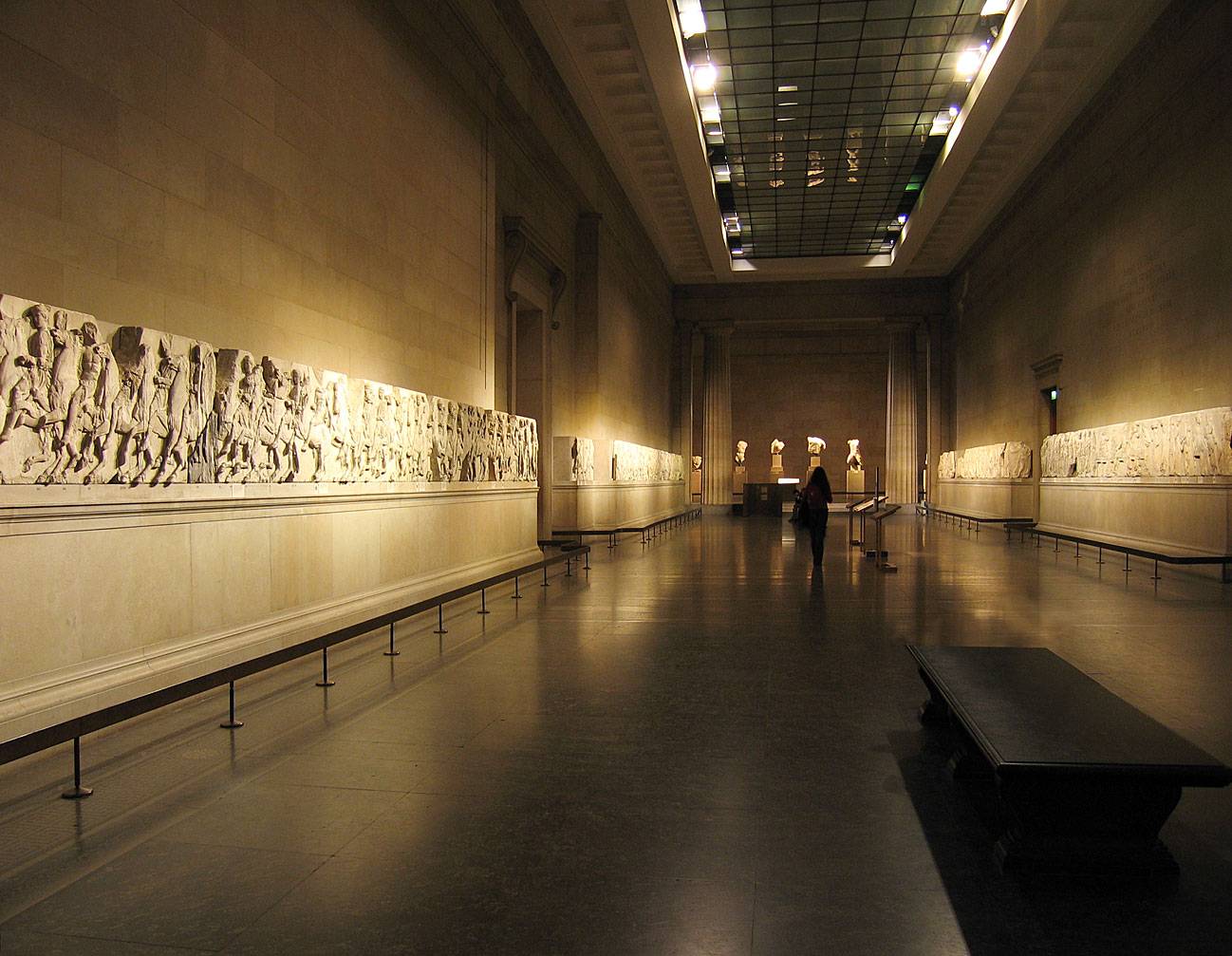
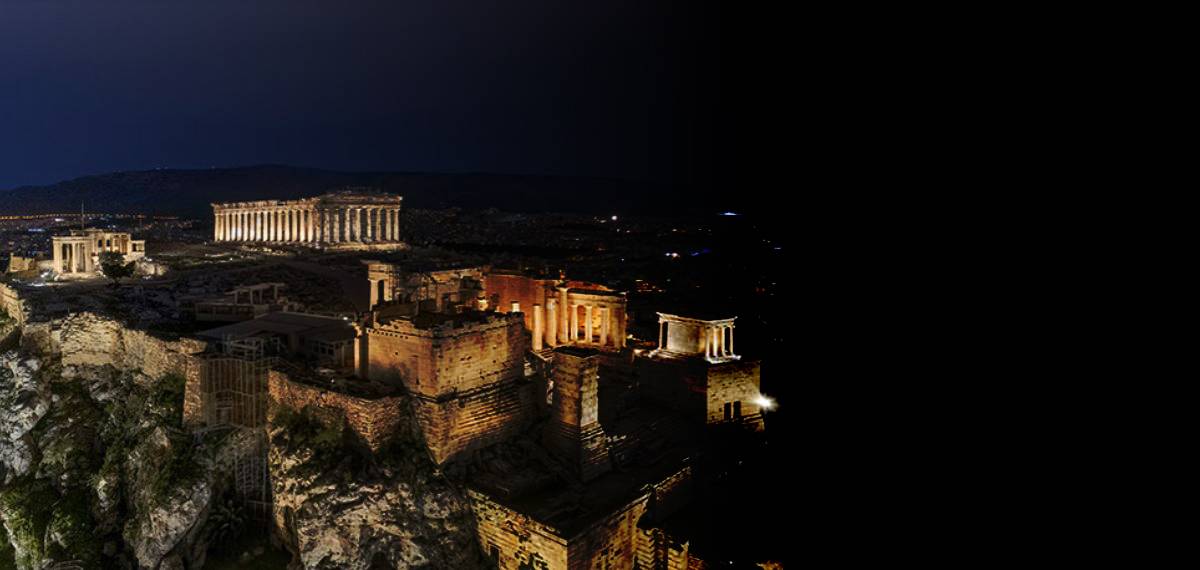
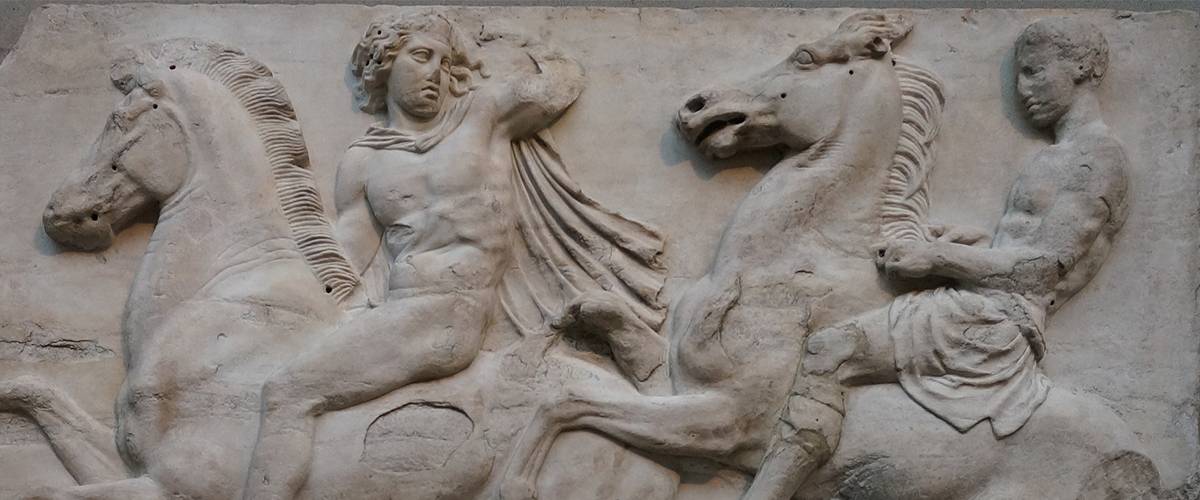

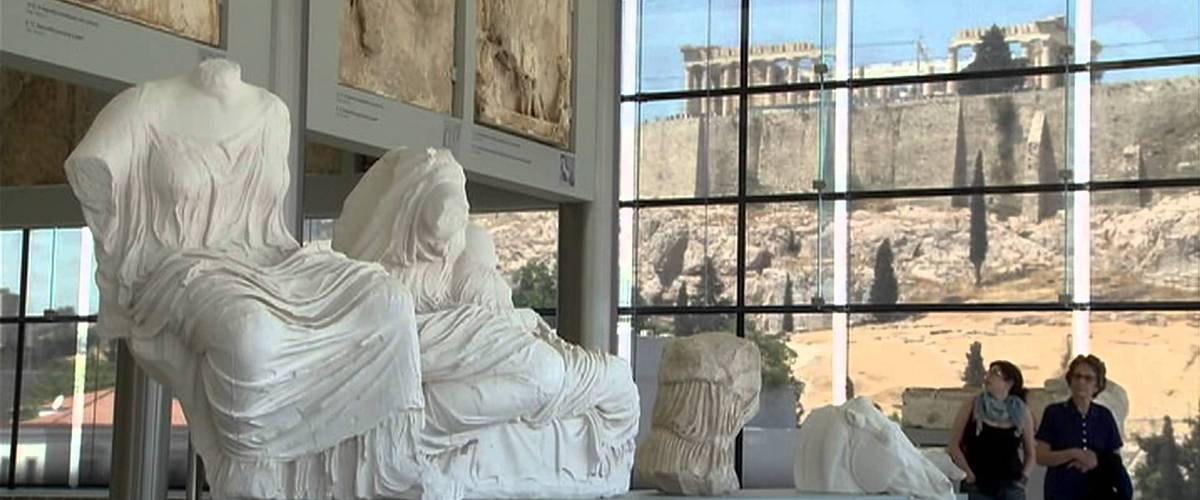
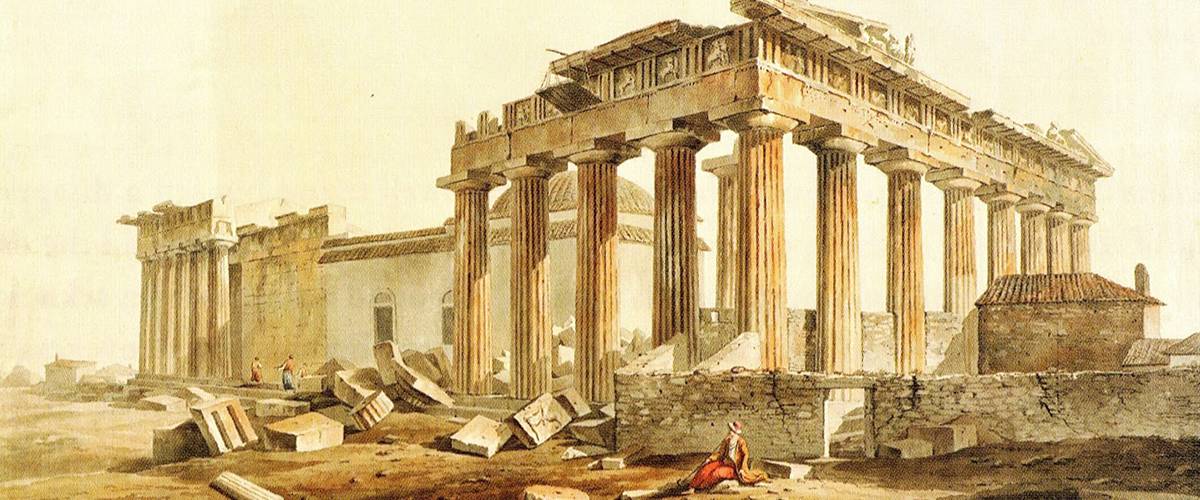
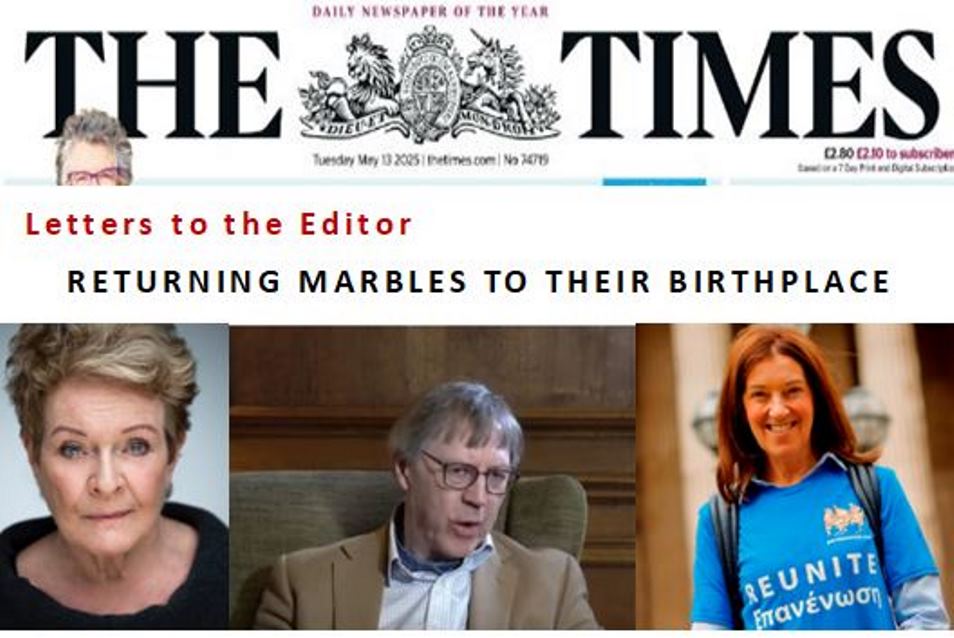
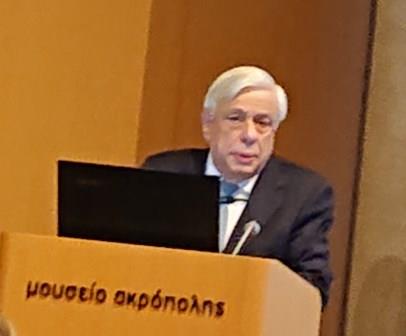
Comments powered by CComment